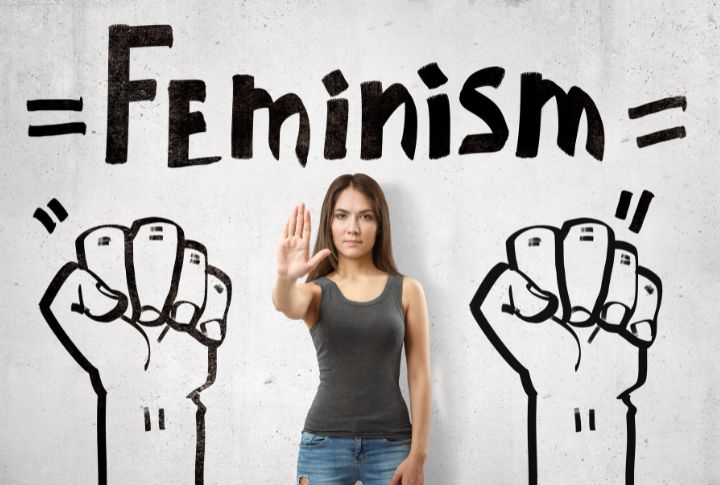
In discussions of gender issues, much emphasis has rightly been placed on toxic masculinity. However, it’s equally crucial to acknowledge that toxic behaviors can manifest regardless of gender. Let’s discuss 15 examples of toxic femininity that often go unaddressed.
The Queen Bee Syndrome

The queen bee syndrome is observed in social dynamics such as workplace environments or social circles. This phenomenon entails a female individual, typically in a position of influence or perceived superiority, exerting dominance by means of belittling, marginalizing, or excluding others of the same gender.
Promoting Codependency in Relationships

Codependent dynamics perpetuated by toxic femininity can be emotionally unhealthy for both partners involved. It can lead to feelings of suffocation, resentment, and a lack of fulfillment, as individuals struggle to meet each other’s unrealistic expectations and needs.
Body Shaming Other Women

In a society already obsessed with unrealistic beauty standards, it’s disheartening to see women perpetuate body shaming. Whether it’s criticizing a colleague’s weight or mocking a friend’s appearance, such behavior reinforces harmful stereotypes.
Playing the Victim Card

Genuine victims deserve support and empathy, but when someone starts using their victim status as a weapon, that’s when it gets toxic. It’s like they’re dodging responsibility or trying to guilt-trip others into doing what they want. Not cool, right? It not only undermines the credibility of real survivors but also perpetuates this idea that women are always helpless and in need of rescue.
Gatekeeping Femininity

Gatekeeping femininity exemplifies a manifestation of toxic feminism characterized by the imposition of narrow definitions and rigid expectations regarding what constitutes acceptable feminine behavior and identity. This phenomenon entails women asserting authority to dictate and regulate gender expression within their social spheres.
Emotional Manipulation

Emotional manipulation stands as a stark example of toxic behavior that undermines the movement’s core principles of equality and empowerment. When employed within feminist spaces or advocacy efforts, emotional manipulation silences dissent, invalidates differing perspectives and maintains power imbalances.
Competitive Motherhood

From Pinterest-perfect birthday parties to Instagram-worthy family vacations, the pressure to be the perfect mother can drive women to compete relentlessly. Such toxic competition undermines solidarity among mothers and prioritizes appearances over authenticity.
Undermining Other Women’s Achievements

Instead of cheering each other on, some women get jealous and start tearing down their friends’ successes. This feeds into the idea that there’s only so much success to go around like it’s a competition for a limited prize. But hey, we’re all in this together, right? It’s time to ditch the envy and start lifting each other up.
Using Sexuality as Currency

In a patriarchal society, women are taught that their worth is tied to their sexuality. Some exploit this notion by leveraging their looks or charm to gain favor or advance their interests, fostering harmful stereotypes and reinforcing objectification
Gaslighting

Gaslighting represents a troubling manifestation of toxic behavior that suppresses the movement’s objectives of empowerment and equality. It is used to silence dissent, dismiss valid concerns, and maintain power dynamics. Moreover, it reinforces patriarchal structures by delegitimizing women’s voices and experiences, thereby hindering progress toward gender equality.
The “Cool Girl” Persona

Made famous by Gillian Flynn’s Gone Girl, the “cool girl” persona demands women deny their needs and desires to fit into male-defined ideals of femininity. As a result, gender stereotypes are reinforced, and women’s autonomy is diminished.
Internalized Misogyny

Women aren’t immune to internalizing societal misogyny, which can manifest as self-loathing or resentment toward other women. Be it slut-shaming or blaming victims of assault, internalized misogyny contributes to harmful narratives that oppress women.
Mom-Shaming

Mom-shaming is a sneaky, toxic trend in which people judge and criticize moms for their parenting choices. It’s all over social media, playground gossip, you name it. It’s not just annoying; it’s downright harmful. Instead of supporting each other in this crazy motherhood journey, it pits moms against each other.
Competitive Friendships

Do you know those friendships that feel more like competition than bond? That’s competitive friendships for you, and they’re seriously toxic. It’s like every accomplishment or good news you share gets overshadowed by your friend trying to one-up you. From the latest promotion to relationship milestones, it’s a constant game of comparison.
Falsely Accusing Others of Misconduct

Toxic femininity encompasses the harmful notion that women can exploit societal biases and stereotypes to manipulate situations to their advantage. Falsely accusing others of misconduct, particularly in cases of sexual harassment or assault, exemplifies this idea. Ultimately, falsely accusing others of misconduct not only harms the accused but also hinders progress towards creating a safer and more equitable society.

Comments
Loading…